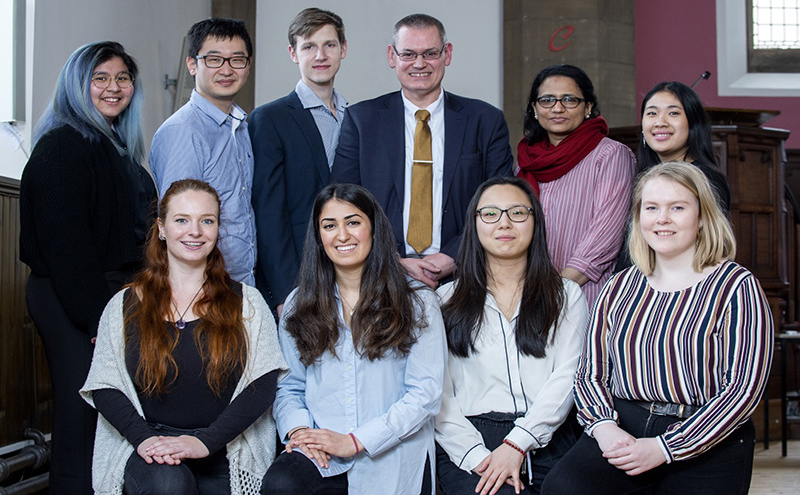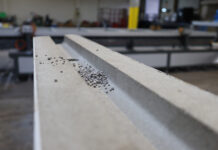
NINE students form the University of Edinburgh have teamed up with contractor Robertson in a bid to help the construction industry embrace change.
The group of students is responding to a data-led challenge set by Robertson, which looks at ways the sector could reduce waste. Construction was identified as a priority sector in the Scottish Government’s first circular economy strategy, ‘Making Thing Last’.
The challenge, which is part of the university’s Students as Change Agents (SAChA) project, saw the group analyse Robertson’s waste management data using the Building Research Establishment (BRE) Smartwaste tool. The group then presented their recommendations to design out waste and drive sustainability across the entire construction process.
The five-day challenge began with the students participating in a training day before meeting Robertson’s sustainability manager, Tony Grundy, and BRE’s Marr Bransby, to discuss the brief.
Tony said, “We’re huge supporters of any project that helps make a positive impact – in this case generating social change through data-led sustainability solutions.
“It’s been interesting to see how the students approached the challenge by analysing our innovation, construction, installation and maintenance waste and environmental data, providing a robust set of recommendations as to how we can continue to better our waste management procedures with the assistance of data.
“The challenge was of great value to not only the students but also to Robertson, and we look forward to continuing to support the University of Edinburgh with industry challenges.”
Funded by the City Region Deal Data-Driven Innovation (DDI) programme, the challenge is designed to give students the chance to address real-world challenges with industry partners.
Maria Gelen, a third year student at the university’s College of Humanities and Social Science, was in one of the teams to work on the challenge. She said, “The basic idea behind the challenge was to propose methods for designing out waste from the construction process. This involved different academic disciplines coming together to work towards the same goal. It was a great opportunity to put theory into practice with a real-world challenge.”
Ruth Donnelly, assistant director, University of Edinburgh Careers Service said, “We’re delighted that so many of our talented and passionate students have been able to benefit from working with our external partners to become ‘change agents’.
“Together they have tackled complex challenges impacting on society, the environment and the economy, using data and working together across boundaries to drive innovation. This is an important step on our journey to become a challenge-led university, co-creating change with students, staff and partners.”








